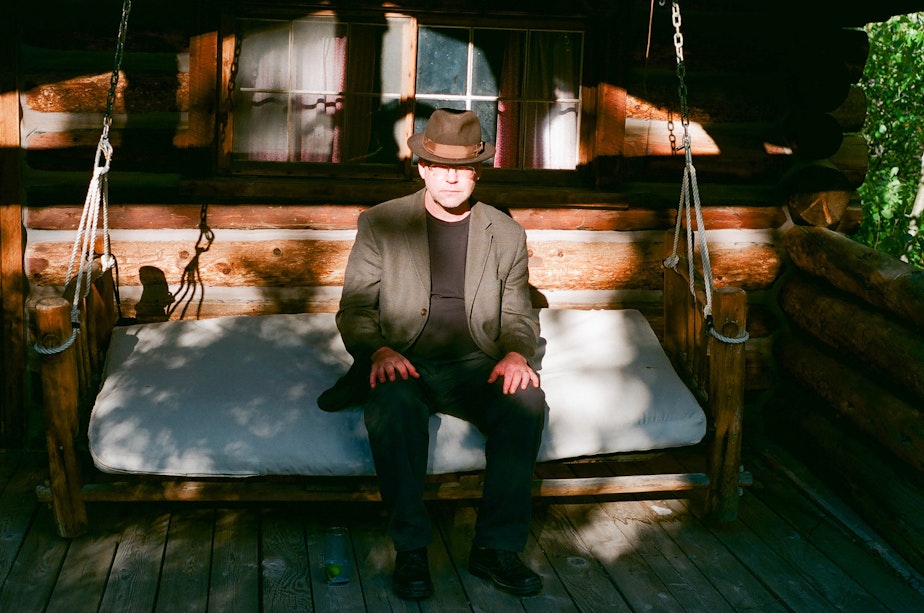Tracing Northwest Grit Through Richard Hugo's Poetry

Seattle’s Richard Hugo House is a literary center in a large wood-frame house, just east of Cal Anderson Park in the Capitol Hill neighborhood.
The center’s namesake, the late poet Richard Hugo, might be taken aback by the trendy restaurants and modern condo buildings that now vie for space in one of the city’s hippest and most expensive neighborhoods.
Hugo was born in White Center, just south of West Seattle, in 1923. He came of age during the Great Depression. The Seattle he knew and wrote about was a far cry from the high-tech hub it has become.
“It was an industrial place in the middle of this unbelievably beautiful location,” says musician Wayne Horvitz. The working class city that spawned Richard Hugo isn’t around anymore.
But Horvitz says Hugo’s poems encapsulate Seattle’s gritty roots, as well as the mood of the Depression-scarred Northwest the poet visited on long road trips.
It’s that mood that Horvitz has pursued in his latest project, a recording called “Some Places Are Forever Afternoon: 11 Places for Richard Hugo.”
The title comes from a line in Hugo’s poem “West Marginal Way”:
Some places are forever afternoon.
Across the road and a short field
There is a river, split and yellow
And this far down affected by the tide.
Horvitz took his musical inspiration from lines in 11 separate Hugo poems. Former Hugo House Director Frances McCue helped guide Horvitz, and her book that chronicles the poet's Northwest wanderings, "The Car That Brought You Here Still Runs," was the catalyst for the musician's own road trip.
Horvitz and his daughter Nica retraced the poet’s journey from his home in Seattle to Missoula, where Richard Hugo took a job teaching creative writing at the University of Montana. Nica Horvitz took photographs that are included, with Hugo’s poetry, in the recording’s liner notes.
Unlike Hugo, Wayne Horvitz isn’t a Northwest native; he and his wife, musician Robin Holcomb, moved to Seattle from New York more than 25 years ago. Horvitz says Hugo’s poems reflect the city and region the couple discovered when they arrived; Seattle hadn’t yet attracted hordes of grunge-seeking music lovers or, later, software developers. The buildings were low-rise stucco; the waterfront had more fishing boats than yachts.
In fact, Seattle was so out of the public eye at that time that Horvitz’s New York art scene friends worried about how his move might impact his art.
“How’s your music gonna change because you’re in the Northwest and it’s more mellow?” he remembers them asking.
Horvitz dismisses the idea that geography would have much effect on his compositions. But over the years, he has cultivated a steady crew of local musical collaborators. And the composer confesses to a longtime affinity with the West.
“I read about the West a lot; I’m interested in Western writers; I drive through the West a lot.” He pauses to reflect.
“I think that seeps into my music. Not in a way that’s literal, but in a way that just has to do with my spirit.”

